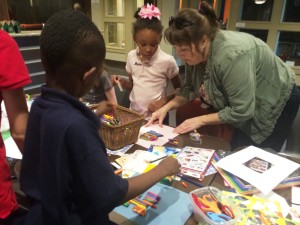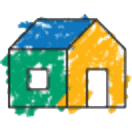Many of the families that come in to Safe Haven Family Shelter have experienced some sort of trauma. These traumatic events not only affect the adults, but also the children. While adults can work through these issues in traditional therapy, young children don’t have the cognitive ability to articulate feelings of fear or anger. When it comes to young children, trauma is manifested in their behaviors. When traumatic events occur at a young age, a child’s brain can become stuck in “survival mode”. This means that a child is unable to regulate emotions normally, and their brain is focused on protecting itself from any danger. This can result is aggressive behavior, poor social skills, and a short attention span.
PCIT is an evidenced-based intervention (i.e. research shows that it works) that is designed for young traumatized children ages 2-7 and their parents. By focusing on the reinforcement of positive behaviors and ignoring most negative behaviors, the goal of PCIT is to decrease behaviors such as hitting, throwing temper tantrums, or disobeying the parents over time. Also, by giving the child one-on-one therapeutic time with the parent, it fosters a sense of safety and security for the child.
PCIT involves two phases. In the first 4-6 weeks, the parent and child practices Child-Directed Interaction (CDI). CDI focuses on strengthening the parent-child relationship through play. This child is encouraged to take the lead, and play with whatever they would like to. The parent simply follows the child’s lead and uses something called the “PRIDE” skills. PRIDE stands for Praise, Reflect, Imitate, Describe, and Enjoy. By praising or describing the child’s behavior, reflecting what the child says, and imitating the child’s play, it communicates to the child that the parent is interested in what they are doing and it increases the child’s self esteem. This results in a stronger bond between the two, which in turn allows the child to feel more safe and calm.
The second phase of PCIT involves Parent-Directed Interaction, or PDI. PDI still uses the basic skills of CDI, but is focused instead on effective discipline techniques. Throughout the session, the parent will continue to use the PRIDE skills, but will also be encouraged to take the lead in the play. This involves giving effective commands and using time out when the child disobeys. This differs from CDI in that the parent avoids giving any commands during CDI sessions. By starting with CDI, the child is usually more receptive to limits and discipline during PDI.
“The help that I am receiving from Safe Haven is bringing me closer to my girls, and we are developing a great mother-daughter bond. PCIT is the best therapy I could have received for my girls. I appreciate it greatly.” – Client participating in PCIT
Homeless children are three times more likely to experience emotional and behavioral problems. One of our goals at Safe Haven Family shelter is to create a place of refuge for families that allows them to feel safe. It is only after this is established that behaviors can be effectively addressed and modified. PCIT creates a type of domino effect, as it strengthens the parent-child relationship, which allows the child to feel more secure, which in turn decreases trauma-related behaviors and allows the child to become more accepting of discipline, which continues to increase the positive behavior and decrease the negative behavior.
Since being implemented, I have seen tremendous success with the families that are participating in PCIT. I look forward to witnessing more families experience growth and healing through Parent-Child Interaction Therapy.
Hannah Evans is the Senior Case Manager at Safe Haven Family Shelter


